Black Friday Briefing – September 19, 2025
House Rejects Censure of Ilhan Omar for Kirk Comments (Sept. 17): A narrow House vote blocked an effort to censure Rep. Ilhan Omar after she criticized slain conservative Charlie Kirk. GOP hardliners sought to punish the Somali-born Democrat and remove her from committees, but moderates balked. Omar called it a “false narrative” aimed at silencing Black and immigrant critics. The failed censure underscores rising free-speech tensions in Congress under Trump, with even some Republicans uneasy about targeting a lawmaker for her commentary on Kirk’s divisive legacy.
Columnist Loses Job Over Kirk Social Posts (Sept. 15): The Washington Post dropped columnist Karen Attiah after she reposted critical comments about Charlie Kirk’s assassination. Attiah, a Black journalist, says she was told her social media “crossed a line.” Press freedom advocates blasted the firing as caving to political pressure. They note Attiah had condemned Kirk’s hateful rhetoric – not the violence – and warn Black voices are being chilled just for speaking truth about a polarizing figure.
City Councilman Faces Fury for Kirk “Karma” Post (Sept. 14): In Tucson, Ariz., Councilman Lane Santa Cruz issued a public apology after posting “karma” about Charlie Kirk’s death. Her Instagram story implying Kirk reaped what he sowed went viral, sparking bipartisan backlash and calls for her resignation. Santa Cruz, who is Afro-Latina, says her remarks were misinterpreted and that she opposes political violence. While colleagues condemned celebrating any murder, local activists note the outrage contrasts with silence over Kirk’s own inflammatory attacks on marginalized people. The episode has ignited debate on decorum – and double standards – for officials on social media.
Trump Presses Supreme Court to Oust Fed’s Lisa Cook (Sept. 18): The Trump administration asked the Supreme Court for an emergency order to remove Federal Reserve Governor Lisa Cook – the Fed’s only Black woman member. A federal judge had blocked Cook’s firing, so Trump is now seeking high-court intervention. He alleges Cook committed mortgage fraud (claims she denies) and wants to replace her with a loyalist to push bigger rate cuts. Critics call it a power grab threatening Fed independence. With Cook’s seat hanging in the balance, economists warn that sidelining her could alter monetary policy – and set a precedent for purging officials who don’t toe the line.
Black-Led Credit Union Opens in Banking Desert (Sept. 19): Minnesota’s first Black-led credit union officially opened its doors, aiming to serve residents overlooked by big banks. Arise Community Credit Union launched on Juneteenth and is now operating online and via a new branch in North Minneapolis. Backed by the Association for Black Economic Power, Arise offers checking accounts, small-business loans, and financial education in historically redlined neighborhoods. Organizers say it’s not just about banking – it’s about building Black wealth and trust. After years of planning, the credit union’s quiet debut marks a grassroots victory against “banking while Black” inequities.
HBCU Nets Historic $150M Gift in Texas (Sept. 18): Huston-Tillotson University, a small HBCU in Austin, announced a stunning $150 million donation – the largest ever to a Black college. The Moody Foundation’s gift will more than triple the school’s endowment and fund scholarships, faculty hires, and new facilities. Students erupted in cheers at the news, which came during the university’s convocation. Unlike headline-making donations to Ivy Leagues, this boost to an unsung HBCU drew little national press. But alumni say it’s transformative, validating the excellence at Black colleges that often struggle for resources.
EPA Orders Syracuse to Fix Lead-Tainted Water (Sept. 16): The EPA slapped Syracuse, N.Y., with a federal order to address high lead levels in its drinking water after an inspection found the city wasn’t following rules. Under the order, Syracuse must improve corrosion control in old pipes, do better lead testing in homes, and launch a public education blitz about avoiding exposure. Syracuse’s water system, serving many Black and brown neighborhoods, has exceeded lead limits in recent tests. City officials pledged full compliance. Environmental justice groups applaud the rare federal intervention, saying many rust-belt cities have hidden lead crises – and now Syracuse will be a blueprint for action.
HUD Rule Puts LGBTQ+ Housing Program at Risk (Sept. 19): A Minneapolis housing nonprofit is reeling after the U.S. HUD abruptly rewrote a grant program, jeopardizing $5.2 million promised for two supportive housing projects. The new rules bar funding to agencies in jurisdictions with policies protecting undocumented immigrants or transgender rights – a litmus test that disqualified the Twin Cities projects. One development would have housed homeless young adults, including LGBTQ+ youth, with on-site services. A judge temporarily blocked HUD’s ideology-based rules, and Minnesota officials are suing. But for now, the urgently needed housing is stalled. Advocates say it’s a prime example of Trump’s culture wars hitting real people on the margins.
Missing Black Woman – Raneycia Johnson, 21 (Reported Sept. 17): Detroit police are searching for Raneycia Johnson, a 21-year-old Black woman last seen leaving her east-side home on Sept. 16. She was wearing a green-and-red hoodie, black pants, and carrying a black book bag. Johnson is about 5’6” and 120 lbs., with black braided hair and brown eyes. According to her mother, Raneycia has schizophrenia and may need medication. Anyone with information is urged to call the Detroit Police 11th Precinct at 313-596-1140 or Crime Stoppers at 1-800-SPEAK-UP. Her family is pleading for the public’s help to bring her home.
Ex-Officer Reindicted in 2022 Killing of Unarmed Black Man (Sept. 16): A Georgia grand jury has reindicted former DeKalb County police officer Russell Mathis in the shooting death of Marando “Doc” Salmon, a 37-year-old Black man killed inside his own home. Mathis originally claimed he thought Salmon’s cellphone was a weapon during a 2022 search and opened fire. Prosecutors had dropped charges earlier this year over legal technicalities but quietly revived the case this week, indicting Mathis on manslaughter and reckless conduct. Salmon’s family says he was simply sitting on his bed when killed. With an arraignment set for November, the case will test Georgia’s resolve to hold officers accountable – something many Black residents doubt until they see it.
Great Blacks in Wax Museum Expands in Baltimore (Sept. 15): Baltimore’s famous Great Blacks in Wax Museum is undergoing a major expansion after years of fundraising. Crews have installed a striking new facade and begun interior renovations in the first phase of a plan to modernize the 40-year-old institution. The museum – known for lifelike wax figures of Black historical icons – has long operated in cramped quarters on East North Avenue. Community leaders fought to secure state and city funds to help it grow. The quiet construction start this week is a win for local Black history preservation. Once completed, the expanded museum will offer more exhibit space and educational programs, ensuring new generations learn stories often left out of textbooks.
Black Farmers Sue USDA Over Broken Debt Relief Promise (Sept. 18): A coalition of Black farmers is taking the USDA to court for rescinding a $4 billion loan forgiveness program that was supposed to help them. The farmers say they made purchases and investments expecting their debts to be erased under a 2021 law designed to remedy decades of discrimination. But white farmers filed reverse-discrimination suits, and Congress repealed the relief last year. Now the Black growers face mounting bills and possible foreclosure. Their lawsuit argues the government breached a contract by telling 14,000 farmers they were approved – then pulling the rug out. It’s an uphill legal battle, but one farmer plaintiff said, “They broke their promise. We’re fighting to get what we were guaranteed.”
N.Y. Lawmakers Push ‘Ebony Alert’ for Missing Black Youth (Sept. 15): New York legislators announced a renewed effort to create an “Ebony Alert” system to locate missing Black children and young women. The proposal – similar to a law California enacted this year – would tailor emergency alerts to cases of missing Black minors, who advocates say don’t get the same media attention or Amber Alerts as white children. State Sen. Lea Webb and Assembly Member Chip Fields credited director Spike Lee with bringing national attention to the idea in a recent project. They argue an Ebony Alert could save lives by focusing resources when Black youth go missing under suspicious circumstances. The bill faces an uphill climb in Albany, but supporters call it long overdue given persistent disparities in search efforts.
Spelman College Plans 670-Bed Dorm to Ease Housing Crisis (Sept. 16): Atlanta’s Spelman College is set to receive $140 million in bonds to build a new 670-bed residence hall – the largest housing expansion in its history. The women’s HBCU currently can house barely half its students on campus, forcing many to scramble for off-campus lodging. A surge in enrollment has worsened the crunch, especially after affirmative action’s rollback led more Black students to choose HBCUs. The modern dorm, slated to open by 2028, will replace two aging residence halls from the 1960s. Spelman officials say the project will “transform campus living” and keep more students in an enriching on-campus environment. With HBCUs nationwide facing similar housing struggles, Spelman’s big build could be a model for tackling capacity shortfalls.
Two Mississippi Hanging Deaths Stir Calls for Federal Probe (Sept. 17): The hanging death of a 21-year-old Black student on a Mississippi college campus – occurring the same day as an unrelated hanging of a white man in a nearby town – has renewed painful questions about racist violence. Delta State University student Trey Reed was found hanging from a tree, and while local authorities have not ruled it a homicide, his family has enlisted attorney Ben Crump to seek the truth. Mississippi’s lone Black congressman, Rep. Bennie Thompson, urged the DOJ and FBI to investigate, given the state’s ugly history of lynchings. Police maintain Reed’s death and the other case in Vicksburg are coincidences. But many Black residents are unconvinced and frightened, demanding transparency as investigations continue.
Atlanta Opens Downtown Grocery to Tackle Food Desert (Sept. 8): Atlanta officials celebrated the opening of the Azalea Fresh Market, a new affordable grocery store in the heart of downtown aimed at combating food insecurity. Until now, the area was a food desert lacking options for fresh produce. The two-story market – a public-private venture involving local grocers and student designers – will serve an estimated 5,500 shoppers a day, including many Black low-income residents and nearby college students. Mayor Andre Dickens said Atlanta has “been without fresh food here for far too long.” Community members are hopeful the store will improve diets and reduce the burden of traveling miles for groceries. City leaders also signaled this is just the start, with plans for a second location to bring healthy food to another underserved neighborhood soon.
HBCUs Struggle to Keep Black Baseball Alive (Sept. 8): On HBCU campuses, baseball and softball programs are fighting to preserve a sport that once thrived in Black America. With MLB’s Black player numbers dwindling, historically Black colleges have become crucial talent pipelines – but they’re underfunded and often overlooked. Coaches at schools like Grambling and FAMU say their teams make do with hand-me-down equipment and minimal scholarships, yet still produce pro prospects. Players often feel the legacy of the Negro Leagues when they suit up. One Southern University infielder said he chose an HBCU because “we get to write a new chapter of Black baseball history.” Despite financial pinch, these programs provide a rare space where Black athletes dominate the diamond, keeping a cultural legacy alive even as resources lag behind predominantly white programs.
ICE Raids Sweep Through Atlanta’s Immigrant Communities (Sept. 5): Hundreds of Black immigrants in Georgia have been caught up in a massive ICE operation that advocates say is designed for political theater. In the past week, agents detained nearly 500 people in the Atlanta area in pre-dawn raids, often targeting apartment complexes known to house African and Caribbean families. The Biden administration had scaled back such large-scale actions, but under Trump, ICE is again executing high-profile crackdowns in “sanctuary” cities. Atlanta’s mayor and police chief complained they got no notice and that the raids sowed fear, with some children coming home to find parents gone. While officials insist those arrested have criminal records, immigration lawyers counter that many are low-level offenders or asylum-seekers now facing deportation. Local churches are scrambling to support traumatized families, and Black immigrant groups are demanding a halt to what they call racially driven roundups.
Illinois Abolishes Cash Bail Statewide (Sept. 18): This week, Illinois became the first state in U.S. history to completely eliminate cash bail, a landmark criminal justice reform that received surprisingly little national coverage. The new system, years in the making, means judges can no longer require defendants to pay money to be released pretrial – a practice that has disproportionately kept Black and brown people jailed for minor charges. Instead, courts will hold hearings to decide if a defendant poses a safety or flight risk. Conservative critics warn of threats to public safety, but early data from pilot programs showed no crime spike. For Black activists who led the push, it’s a huge win against what they call “wealth-based jailing.” They note that thousands of presumptively innocent people – many unable to afford bail as low as a few hundred dollars – could now go home to their families instead of languishing behind bars awaiting trial.
D.C. Cracks Down on Housing Voucher Discrimination (Sept. 9): The D.C. attorney general announced a legal settlement with a property owner accused of refusing to rent to tenants with housing vouchers. The landlord allegedly advertised “No Section 8” on listings – a practice outlawed in the District. Under the settlement, he’ll pay fines and agree to accept voucher holders moving forward. It’s part of a stepped-up enforcement of “source of income” discrimination bans in many cities. Black renters are disproportionately hurt when landlords reject vouchers, since Black households make up a large share of voucher users. Advocates applaud D.C.’s action but say the issue is widespread: similar sting operations in Boston, Chicago, and Baltimore have found many landlords still covertly exclude low-income and Black applicants. The hope is high-profile cases will put landlords on notice that bias comes with a price.
Texas Professors Sue Over State’s DEI Ban (Sept. 18): Professors at several Texas public universities filed suit challenging the state’s new ban on diversity, equity, and inclusion offices in higher education. The law, which took effect this semester, forced universities to close DEI programs and training initiatives under threat of funding cuts. Faculty plaintiffs – including Black and Latino professors – argue the ban violates their academic freedom and harms recruitment of students of color. Republican lawmakers behind the policy say DEI efforts were “woke indoctrination” and insist the ban stays. As the lawsuit heads to court, Texas finds itself a test case in the national tug-of-war over DEI. Students on some campuses report immediate impacts, like fewer resources for minority student groups and mentoring. The outcome may determine whether similar bans spread to other red states or face constitutional roadblocks.
Atlanta ‘Cop City’ Referendum Fight Heads to Court (Sept. 13): The battle over Atlanta’s proposed police training center – dubbed “Cop City” by opponents – intensified as activists submitted over 100,000 signatures to force a referendum on the project. The city, however, is challenging the petition drive in court, arguing procedural issues to prevent a public vote. At stake is a controversial $90 million, 85-acre police and fire training complex in a Black neighborhood’s forested parkland. The push for a citizen vote has huge support from local Black residents who fear militarization of police and environmental damage. City officials aligned with the Trump administration want to press on with construction, saying the facility is needed to address crime. A federal judge already intervened once to extend the petition deadline after accusations the city was stonewalling. Now all eyes are on the court hearing later this month that will decide if democracy gets its say on Cop City or if the project proceeds despite the uproar.
Tennessee Legislative Session Erupts Over Silencing Black Lawmakers (Sept. 1): A special session on public safety in Nashville descended into chaos when Republican leaders repeatedly silenced two young Black Democratic lawmakers, Reps. Justin Jones and Justin Pearson. The pair – famously expelled then reinstated earlier for a gun control protest – were gaveled out of order whenever they broached police reform or gun laws. Tensions boiled over as state troopers forcibly removed shouting spectators in the gallery, many of them Black community members. The session ended with no meaningful gun legislation, only new rules limiting protests at the Capitol. Jones and Pearson say the GOP supermajority would rather muzzle dissent than debate ideas to save lives. The spectacle, including a physical scuffle on the House floor, got scant national attention compared to their expulsion saga. But Black Tennesseans saw it plainly: the power structure’s refusal to hear their voices on an issue – gun violence – that disproportionately impacts their communities.
Oakland NAACP Under Fire for “Crime” Letter (Sept. 17): A blistering open letter from the Oakland NAACP blaming local leaders for high crime has ignited infighting and confusion. The letter, released last month by the branch’s president (who is Black), blasted the city’s “failed leadership” and “anti-police rhetoric,” even suggesting tolerating public homelessness leads to lawlessness. It called for more policing and declared “criminals have taken over our streets.” National NAACP officials quietly distanced the organization from the letter, which many activists say parrots conservative talking points and ignores systemic causes. Oakland’s progressive Black council members were livid, noting the letter’s author did not consult the chapter membership. Some long-time NAACP supporters are concerned the 108-year-old civil rights group is straying from its mission – while others in the community, fearful after robberies, welcomed the hard line on crime. The controversy lays bare generational and ideological divides among Black Oaklanders on how to tackle public safety.
Chicago Police Oversight Fires Officer in Teens Beating (Sept. 14): Chicago’s new civilian police oversight commission flexed its muscle by securing the firing of an officer caught on video beating two Black teenagers last year. The incident, which happened during a 2024 traffic stop, only came to light in June when bodycam footage was released under a watchdog’s lawsuit. It showed the officer striking a 17-year-old with a baton while another teen was pinned. After protests, the city’s Community Commission for Public Safety demanded the officer’s removal – a recommendation the police superintendent initially resisted. But this week, under mounting pressure, the Chicago Police Board voted to terminate the officer. It’s the first big victory for the voter-created oversight panel, which Black residents fought to establish after decades of brutality cases. Commissioners hail it as proof that civilian oversight can deliver a measure of justice, while the police union blasted the firing as “political appeasement.”
Florida A&M Sues State Over Funding Discrimination (Sept. 19): Six students at Florida A&M University, an HBCU, filed a class-action lawsuit accusing the state of underfunding FAMU by at least $1.3 billion compared to Florida’s flagship white institutions. The suit alleges that for decades FAMU hasn’t received equitable resources for faculty pay, facilities or research – a violation of federal law and the 14th Amendment. They point out that FAMU, with 10,000 students, often shares less funding than nearby Florida State with 30% of the Black enrollment. The disparity leaves FAMU students in overcrowded dorms and with fewer course offerings. The complaint echoes prior legal battles in Maryland and Tennessee where courts found states shortchanged Black colleges. Florida officials under Gov. DeSantis have yet to comment, but the lawsuit lands amid already fraught debates over race and education in the state. Current FAMU students say they love their school but deserve the same investment in their futures as any student at UF or FSU – and they’re taking the fight to court to make that happen.
Google Antitrust Trial Seen as Win for Black Media – Quietly (Sept. 18): In Washington, the landmark antitrust trial against Google began, focusing on its dominance in online search. One underreported angle: Black-owned media outlets are cheering the case. Why? They argue Google’s stranglehold on digital ad revenue has starved small independent publishers – especially Black newspapers and websites that can’t compete with Big Tech for ad dollars. Organizations like the Black Press (NNPA) have lobbied for years claiming Google and Facebook’s duopoly has diverted billions that once sustained local media serving communities of color. If the Justice Department prevails and breaks up parts of Google’s empire, Black media advocates believe it could redirect advertising opportunities back to diverse outlets. “This trial is about fairness in the economy,” said one NNPA member, “and that includes giving the Black press a fighting chance.” It’s a perspective largely missing from mainstream tech coverage, yet one with big implications for information equity.
Maryland Court Upholds Lawsuit on Voucher Bias (Sept. 15): In a win for fair housing proponents, Maryland’s highest court cleared the way for a Black woman’s lawsuit accusing a landlord of “source of income” discrimination. The plaintiff says a Baltimore-area property manager refused to rent to her once she mentioned using a housing choice voucher. A lower court had tossed the case, but the Maryland Supreme Court reinstated it, affirming that voucher holders can sue under civil rights law. Housing advocates are celebrating the precedent in Maryland, which banned income discrimination in 2020 but rarely sees enforcement. Black families comprise a large portion of voucher users and often face subtle refusals – a practice that perpetuates segregation. The case now heads to trial, potentially setting a benchmark that turning away a tenant solely for paying with rental assistance is not only wrong but legally actionable.
Calif. School Book Ban Blocked as Unconstitutional (Sept. 17): A federal judge issued a preliminary injunction halting a Southern California school district’s ban on certain “controversial” books, many of which were by Black or LGBTQ authors. The district had removed over 30 titles – including Toni Morrison’s The Bluest Eye and a biography of Harvey Milk – under a vaguely worded new state law against “indoctrination.” Parents and students sued, saying the district was targeting diverse perspectives. The judge agreed they’re likely to win on First Amendment grounds, calling the ban an “overreach” that censors literature for all students. While the case proceeds, the books will return to library shelves. Free-speech groups hailed the decision and noted that with so many school book bans nationwide (especially in Black history and queer topics), this might be the first major legal pushback. Local Black parents, who rallied to defend the books, called it a small but crucial victory against erasing their stories from classrooms.
Black Surfers Unite for Historic California Meet-Up (Sept. 27): In Huntington Beach, Calif., hundreds of Black surfers are expected to hit the waves together in what organizers call the world’s largest-ever gathering of Black surfing enthusiasts. “A Great Day in the Stoke,” now in its fourth year, celebrates Black surf culture and welcomes newcomers to a sport where they’ve often felt unwelcome. Surfing remains over 80% white in the U.S., and Black surfers say they still get stares and subtle exclusion at popular breaks. This weekend’s event features a friendly surf competition, live music, and free lessons for kids of color. The festival’s founder – a former pro surfer who is Black – says the goal is to show that surfing is for everyone and to honor pioneers like Nick Gabaldón, the first documented Black surfer. While big surf brands and media have largely ignored it, the event has grown exponentially through social media buzz. Participants are traveling from as far as Senegal and Brazil to be part of this year’s paddle-out, making a powerful statement of visibility in the surfing world.
NAACP Travel Advisory Puts Mississippi on Blast (Sept. 13): The NAACP issued a formal travel advisory warning Black Americans about “potential danger and discrimination” in Mississippi under its current policies. Citing recent laws curbing Black political power in Jackson, the state’s refusal to expand Medicaid, and incidents like the mysterious hanging death of a Black student, the advisory urges “extreme caution” when visiting or relocating to Mississippi. State leaders slammed it as a stunt that harms Mississippi’s image, pointing out the NAACP did something similar for Florida earlier this year. But local civil rights activists say it shines a needed spotlight on inequities – from majority-Black towns without hospitals to alleged racial profiling by police on highways. While travel advisories are largely symbolic, they have a mixed reception among Black Mississippians: some worry it deters needed investment, others argue it’s a wake-up call for a state that leads in poverty and racial gaps. Either way, it’s extraordinary – and largely ignored by mainstream media – to see the NAACP effectively label an entire U.S. state as hostile territory in 2025.
Judge Greenlights Black Voters’ Lawsuit on Alabama Maps (Sept. 19): A federal court allowed Black voters in Alabama to proceed with a contempt claim against state officials who defied orders to create a second majority-Black congressional district. After the U.S. Supreme Court ruled Alabama’s old map violated the Voting Rights Act, the state’s Republican legislature pushed through a new map still clustering most Black voters in one district. Plaintiffs say Alabama is essentially thumbing its nose at the High Court and diluting Black voting strength yet again. Now a three-judge panel in Birmingham is weighing whether to seize control of the redistricting process and impose its own fair map in time for 2026. The legal fight – largely overshadowed by other news – could have major political implications, potentially giving Black Alabamians representation more reflective of their 27% of the population. It also signals that even after a Supreme Court win, Black voters are having to battle recalcitrant state leaders to see justice carried out on the ground.



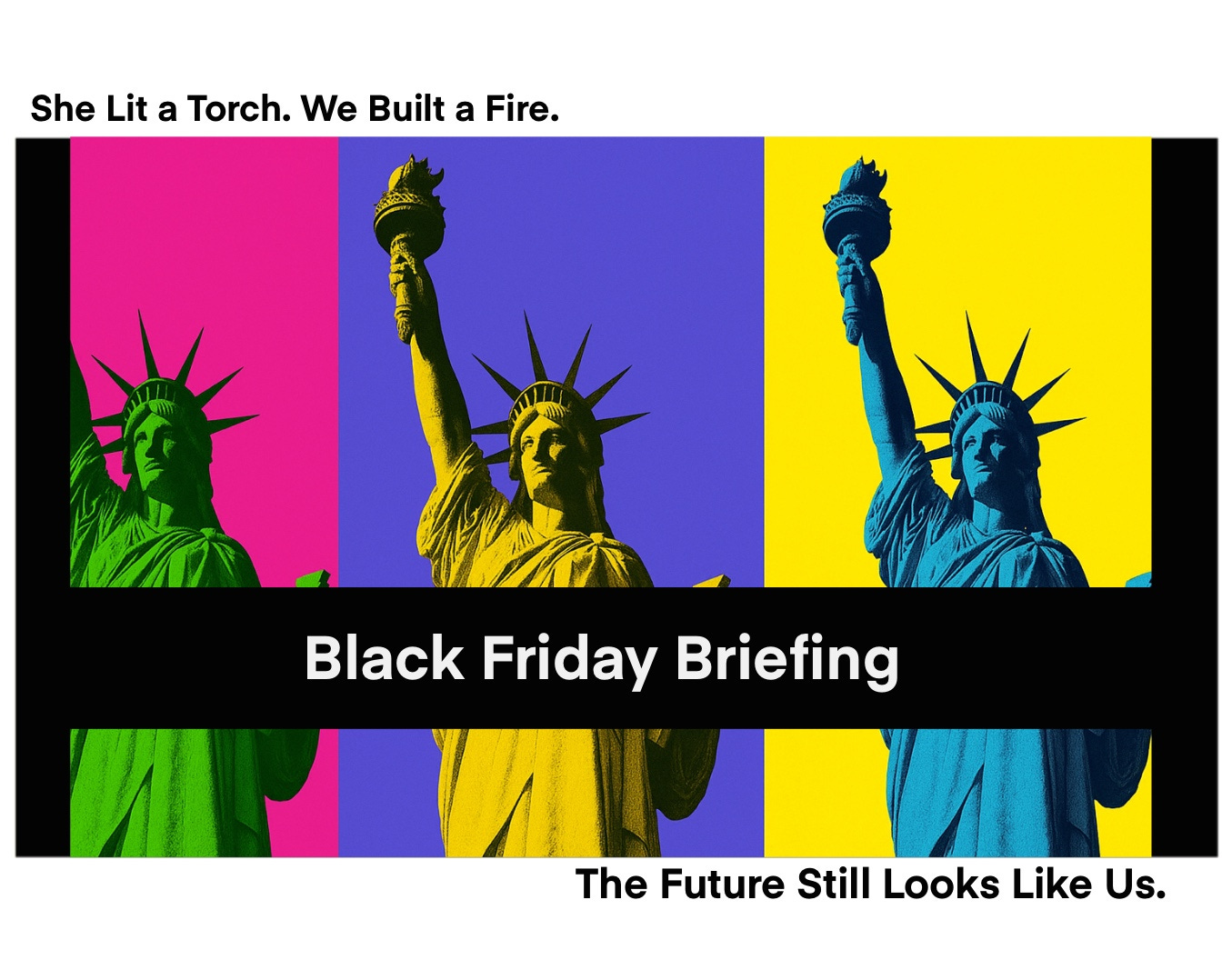

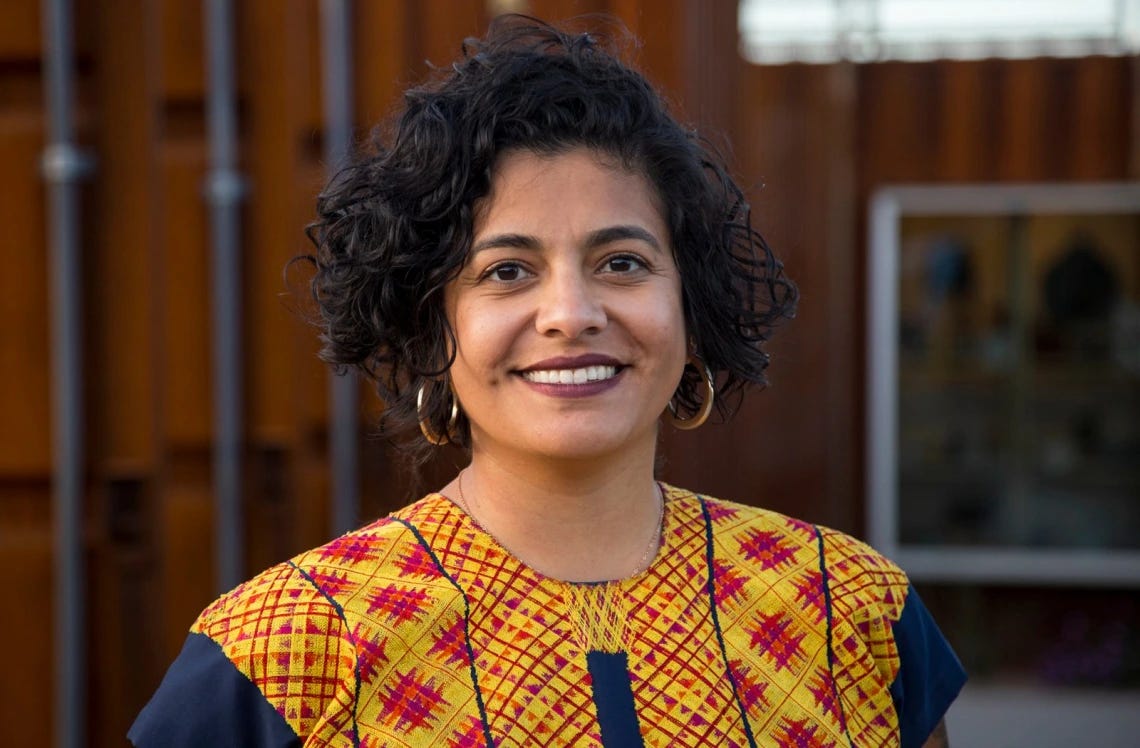
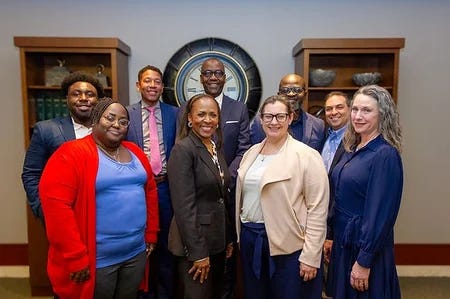
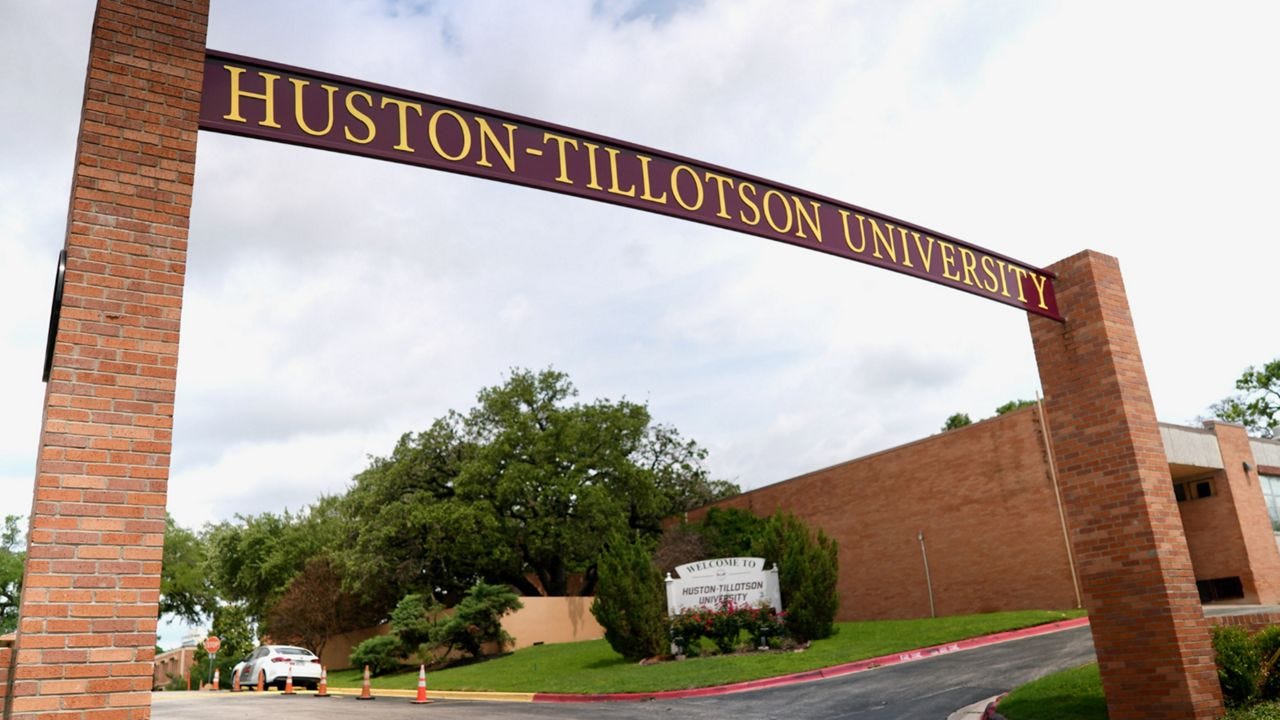

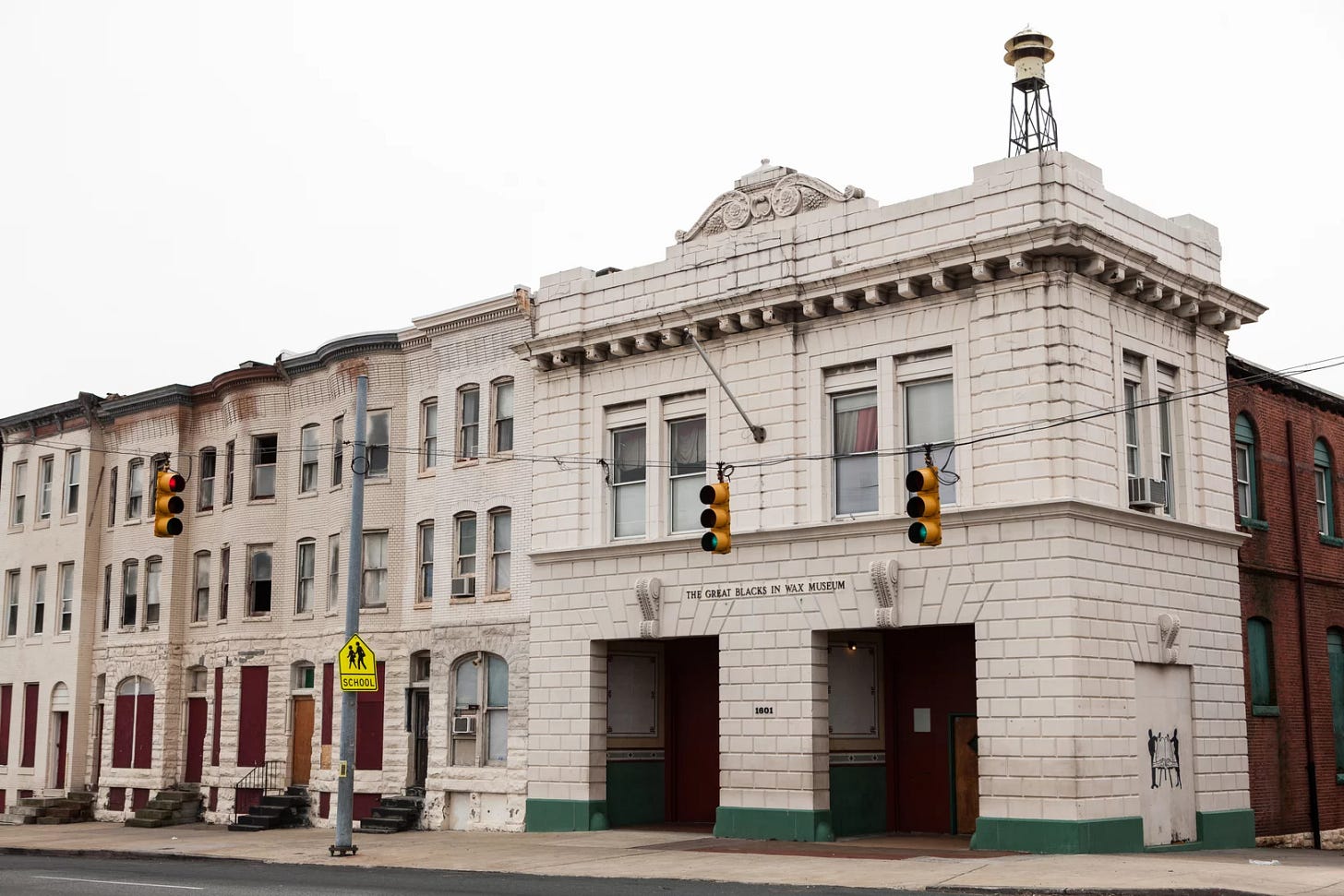
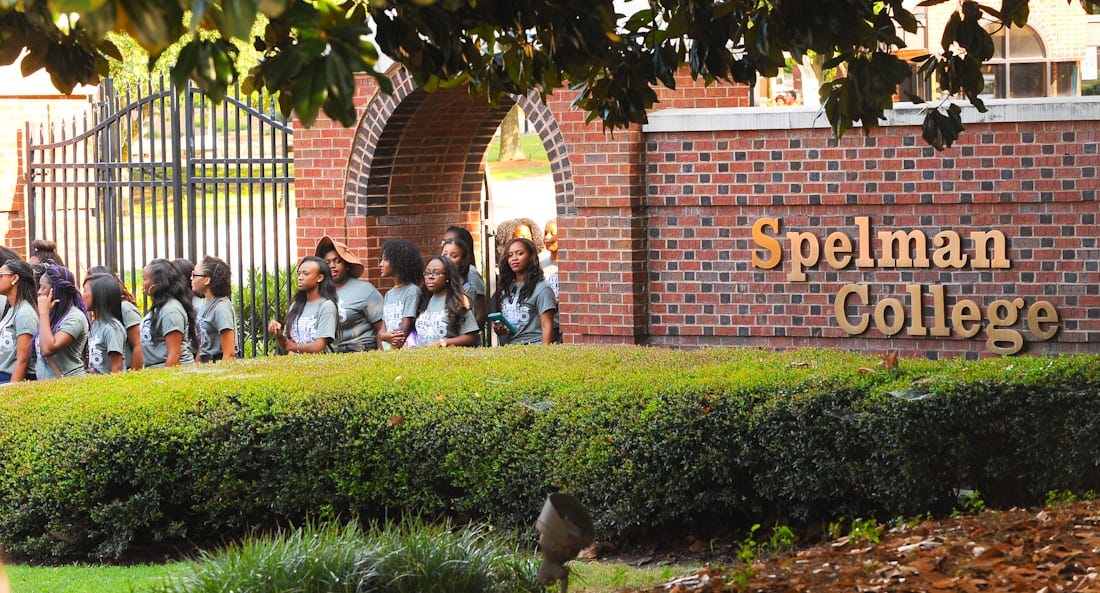
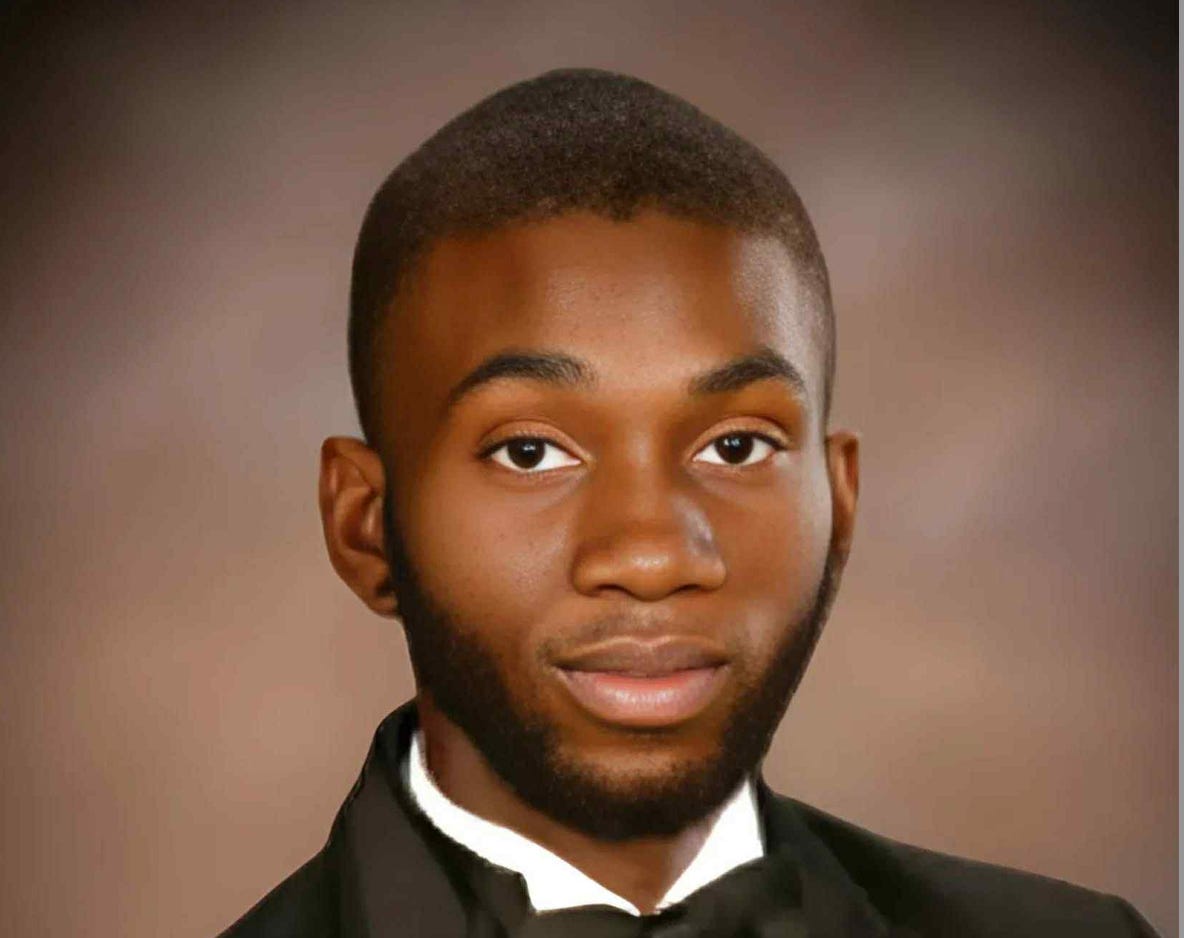
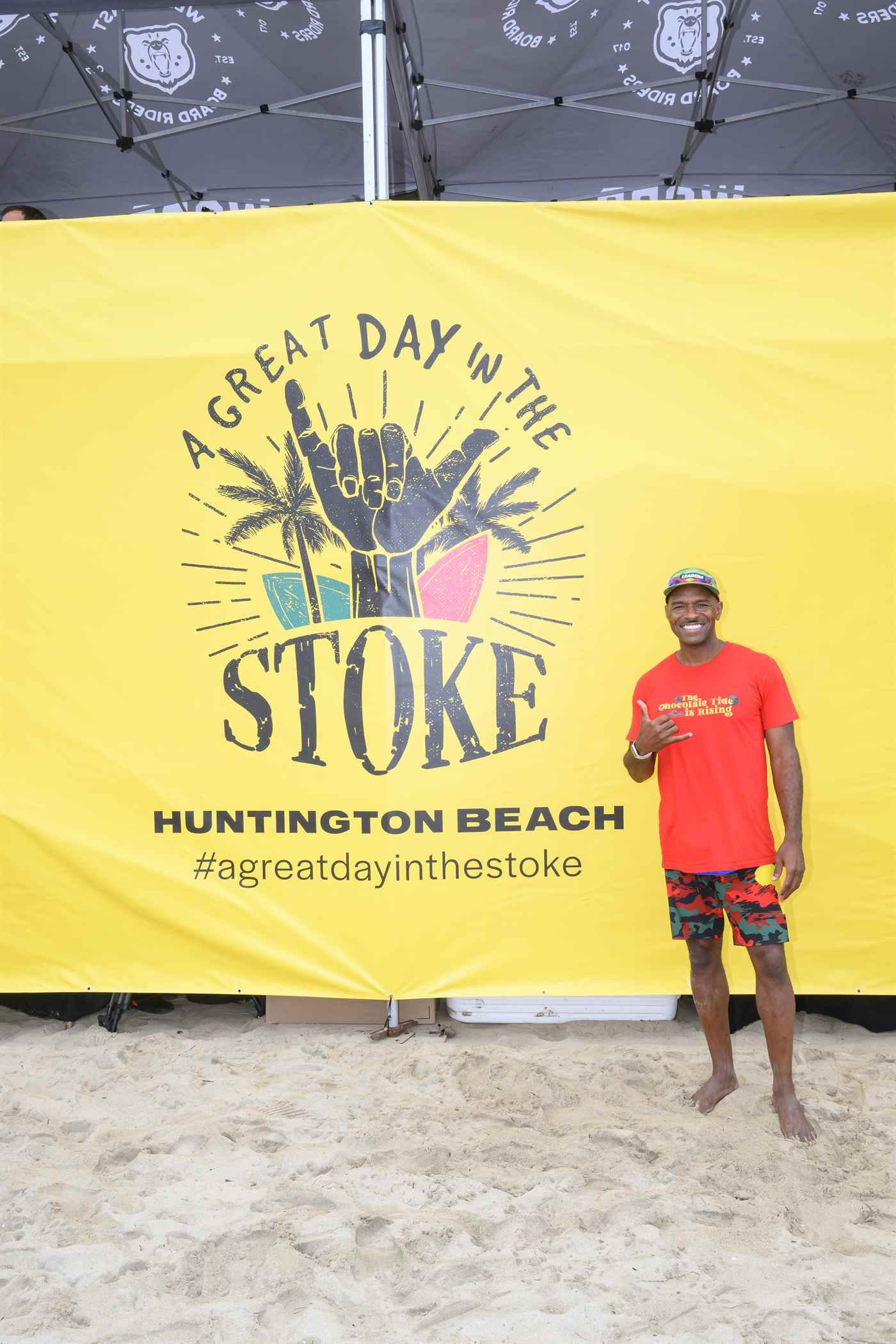
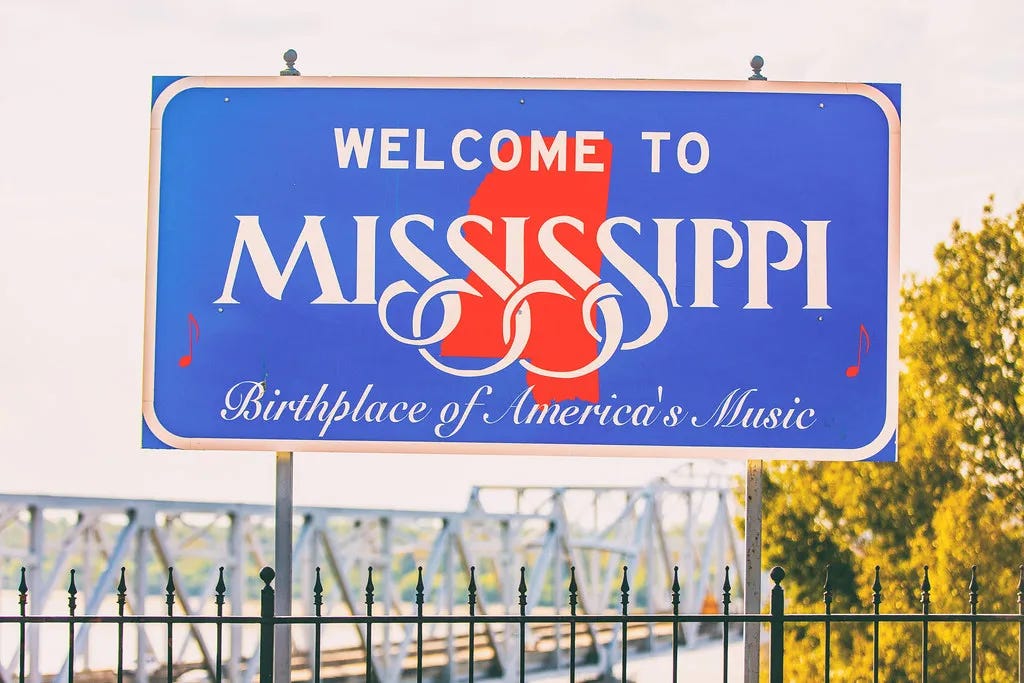
Thanks X!!!! Great stuff. Props for the HBCU donation. You were one of the first to bring us the news of Karren Attiah. She won’t be silenced. She will have a voice.
What the "hell" is going on in Mississippi, not a question but outrage. God speed to Attorney Ben Crump to investigate and bring the predator(s) to justice. So devasating for Trey Reed family, Mississippi citizens and all humanity. Lynchings are SO SICK and SATANIC! I have subscribed to Ben Crump on substack. I would like to read updates...he can be an important voice.